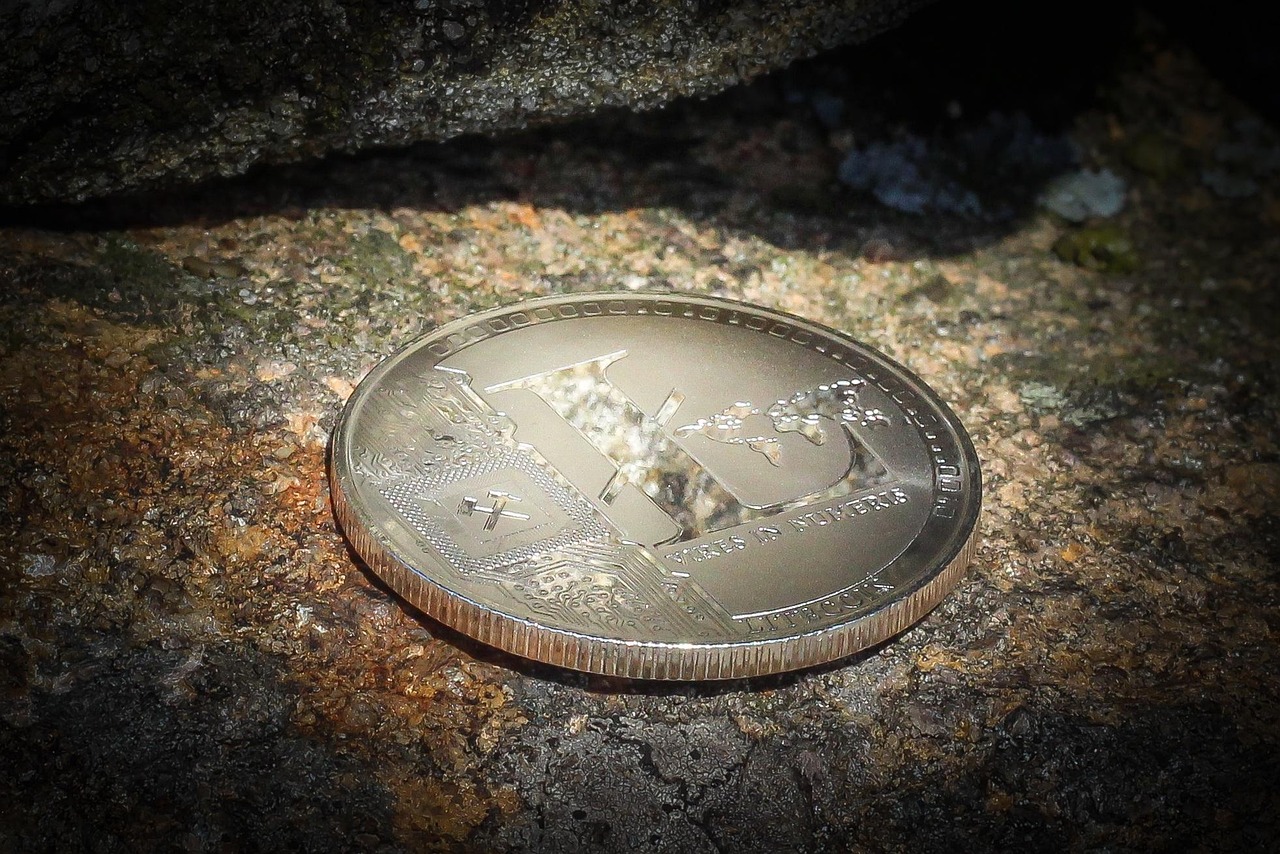Cryptocurrency has rapidly transformed from a niche technology to a mainstream investment and financial tool. Understanding the intricacies of digital currencies is crucial for anyone looking to participate in this evolving landscape, whether as an investor, a technologist, or simply an informed observer. This comprehensive guide will delve into the world of cryptocurrency, covering its fundamentals, key technologies, practical applications, and the potential risks and rewards involved.
What is Cryptocurrency?
Cryptocurrency is a digital or virtual currency secured by cryptography, which makes it nearly impossible to counterfeit or double-spend. It operates on a decentralized network, typically based on blockchain technology, meaning it is not controlled by a single entity like a central bank. This decentralized nature is one of the key factors driving its adoption and innovation.
Core Characteristics of Cryptocurrency
- Decentralization: Cryptocurrencies operate on a distributed ledger, minimizing central control and censorship.
- Cryptography: Strong cryptographic techniques secure transactions, making them resistant to fraud.
- Transparency: Blockchain technology provides a transparent and auditable record of all transactions.
- Global Accessibility: Cryptocurrencies can be sent and received anywhere in the world with internet access.
- Limited Supply (often): Many cryptocurrencies, like Bitcoin, have a capped supply, potentially increasing scarcity and value over time.
How Cryptocurrency Works: Blockchain Technology
At the heart of most cryptocurrencies is blockchain technology. A blockchain is a distributed, immutable ledger that records transactions in blocks. These blocks are cryptographically linked together, forming a chain.
- Transactions: Users initiate transactions through their digital wallets.
- Verification: These transactions are then broadcast to the network and verified by miners (in Proof-of-Work systems) or validators (in Proof-of-Stake systems).
- Block Creation: Verified transactions are grouped into a block, which is then added to the blockchain.
- Immutability: Once a block is added to the chain, it cannot be altered, ensuring the integrity of the ledger.
- Example: Imagine you send 1 Bitcoin (BTC) to a friend. This transaction is broadcast to the Bitcoin network. Miners verify the transaction by solving complex cryptographic puzzles. Once verified, the transaction is added to a block, and that block is added to the Bitcoin blockchain. This transaction is now permanently recorded and accessible to anyone on the network.
Key Cryptocurrencies and Their Uses
While Bitcoin was the first cryptocurrency, the market has expanded to include thousands of different coins and tokens, each with unique characteristics and use cases.
Bitcoin (BTC)
Bitcoin is the original and most well-known cryptocurrency. It’s often referred to as “digital gold” due to its limited supply and potential as a store of value.
- Use Case: Store of value, digital gold, medium of exchange (though less common due to slower transaction times and higher fees compared to newer cryptocurrencies).
- Market Capitalization: Consistently the largest cryptocurrency by market capitalization.
- Limitations: Relatively slow transaction speeds and higher fees compared to some newer cryptocurrencies.
Ethereum (ETH)
Ethereum is a decentralized platform that enables the creation and execution of smart contracts and decentralized applications (dApps).
- Use Case: Platform for building dApps, smart contracts, decentralized finance (DeFi) applications, and Non-Fungible Tokens (NFTs).
- Smart Contracts: Self-executing contracts with the terms of the agreement written directly into code.
- Ethereum 2.0: A major upgrade transitioning Ethereum from a Proof-of-Work to a Proof-of-Stake consensus mechanism, aiming to improve scalability, security, and sustainability.
Altcoins
“Altcoins” refers to cryptocurrencies other than Bitcoin. There are thousands of altcoins, each with unique features and functionalities. Examples include:
- Litecoin (LTC): An early Bitcoin alternative, designed for faster transaction confirmation times.
- Ripple (XRP): Designed to facilitate faster and cheaper cross-border payments.
- Cardano (ADA): A proof-of-stake blockchain platform focusing on security and sustainability.
- Solana (SOL): Known for its high transaction throughput and low fees.
- Practical Example: Consider a decentralized finance (DeFi) application built on Ethereum. This application could allow users to lend and borrow cryptocurrency without the need for a traditional financial intermediary, using smart contracts to automate the process and ensure transparency.
Investing in Cryptocurrency: Risks and Rewards
Investing in cryptocurrency can be potentially rewarding, but it also comes with significant risks. Understanding these risks and implementing proper risk management strategies is essential.
Potential Rewards
- High Potential Returns: Cryptocurrencies have the potential for significant price appreciation.
- Diversification: Cryptocurrencies can offer diversification benefits to a traditional investment portfolio.
- Innovation: Investing in cryptocurrencies can support innovative technologies and projects.
- Decentralized Finance: Access to new financial opportunities through DeFi platforms.
Key Risks
- Volatility: Cryptocurrency prices are highly volatile and can fluctuate dramatically.
- Security Risks: Cryptocurrency exchanges and wallets can be vulnerable to hacking and theft.
- Regulatory Uncertainty: The regulatory landscape surrounding cryptocurrency is constantly evolving and can impact prices.
- Project Risk: Many cryptocurrency projects are early-stage and may fail to deliver on their promises.
- Scams: The cryptocurrency market is susceptible to scams and fraudulent projects.
Tips for Managing Risk
- Do Your Research: Thoroughly research any cryptocurrency before investing in it.
- Diversify Your Portfolio: Don’t put all your eggs in one basket. Spread your investments across multiple cryptocurrencies.
- Use Secure Wallets: Store your cryptocurrency in secure wallets, such as hardware wallets.
- Be Wary of Scams: Be cautious of projects that promise unrealistic returns or have overly complex structures.
- Start Small: Begin with a small investment and gradually increase your holdings as you become more comfortable with the market.
- Actionable Takeaway: Before investing, create a risk assessment plan. Determine how much capital you are willing to risk and set realistic profit targets. Use stop-loss orders to limit potential losses.
Storing and Securing Your Cryptocurrency
Securing your cryptocurrency is crucial to prevent theft and loss. Choosing the right wallet and implementing security best practices are essential.
Types of Cryptocurrency Wallets
- Hardware Wallets: Physical devices that store your private keys offline, providing the highest level of security. Examples: Ledger, Trezor.
- Software Wallets: Applications installed on your computer or mobile device that store your private keys.
Desktop Wallets: Electrum, Exodus.
Mobile Wallets: Trust Wallet, Coinbase Wallet.
- Web Wallets: Wallets accessed through a web browser. These are generally less secure than hardware or software wallets. Examples: Binance Wallet, Blockchain.com.
- Exchange Wallets: Cryptocurrency stored on an exchange. This is generally considered the least secure option.
Security Best Practices
- Use Strong Passwords: Create strong, unique passwords for all your cryptocurrency accounts.
- Enable Two-Factor Authentication (2FA): Add an extra layer of security to your accounts by requiring a second form of verification.
- Store Private Keys Securely: Never share your private keys with anyone.
- Keep Software Updated: Keep your wallet software and operating system updated to patch security vulnerabilities.
- Be Careful of Phishing Scams: Be wary of emails or websites that ask for your private keys or login credentials.
- Practical Example: Consider using a hardware wallet like Ledger. When you make a transaction, you need to physically confirm it on the device, preventing unauthorized access to your funds even if your computer is compromised.
The Future of Cryptocurrency
The future of cryptocurrency is uncertain, but it has the potential to significantly impact various industries and aspects of our lives.
Potential Use Cases
- Decentralized Finance (DeFi): Revolutionizing financial services by offering decentralized lending, borrowing, and trading platforms.
- Supply Chain Management: Enhancing transparency and traceability in supply chains using blockchain technology.
- Identity Management: Creating secure and decentralized digital identities.
- Voting Systems: Implementing secure and transparent online voting systems.
- Non-Fungible Tokens (NFTs): Creating and trading unique digital assets, such as artwork, music, and collectibles.
Challenges and Opportunities
- Scalability: Improving the scalability of blockchain networks to handle a large volume of transactions.
- Regulation: Developing clear and consistent regulatory frameworks for cryptocurrencies.
- Adoption: Increasing mainstream adoption of cryptocurrencies by addressing usability and accessibility challenges.
- Environmental Impact: Addressing the environmental concerns associated with energy-intensive Proof-of-Work consensus mechanisms.
- Actionable Takeaway:* Stay informed about the latest developments in the cryptocurrency space by following reputable news sources, attending industry events, and engaging with the community. Understanding the trends and challenges will help you make informed decisions.
Conclusion
Cryptocurrency represents a groundbreaking innovation with the potential to reshape the future of finance and technology. While investing in cryptocurrency involves inherent risks, understanding the underlying principles, key technologies, and best practices can help you navigate this dynamic landscape. By conducting thorough research, managing risk effectively, and staying informed about the latest developments, you can make informed decisions and potentially benefit from the opportunities that cryptocurrency offers. The continued evolution of blockchain technology and the increasing adoption of digital currencies suggest that cryptocurrency will remain a significant force in the global economy for years to come.
Read our previous article: Beyond The Transistor: Rethinking Computings Power Limits





One thought on “Beyond Bitcoin: Untapped Crypto Niches For Investors”